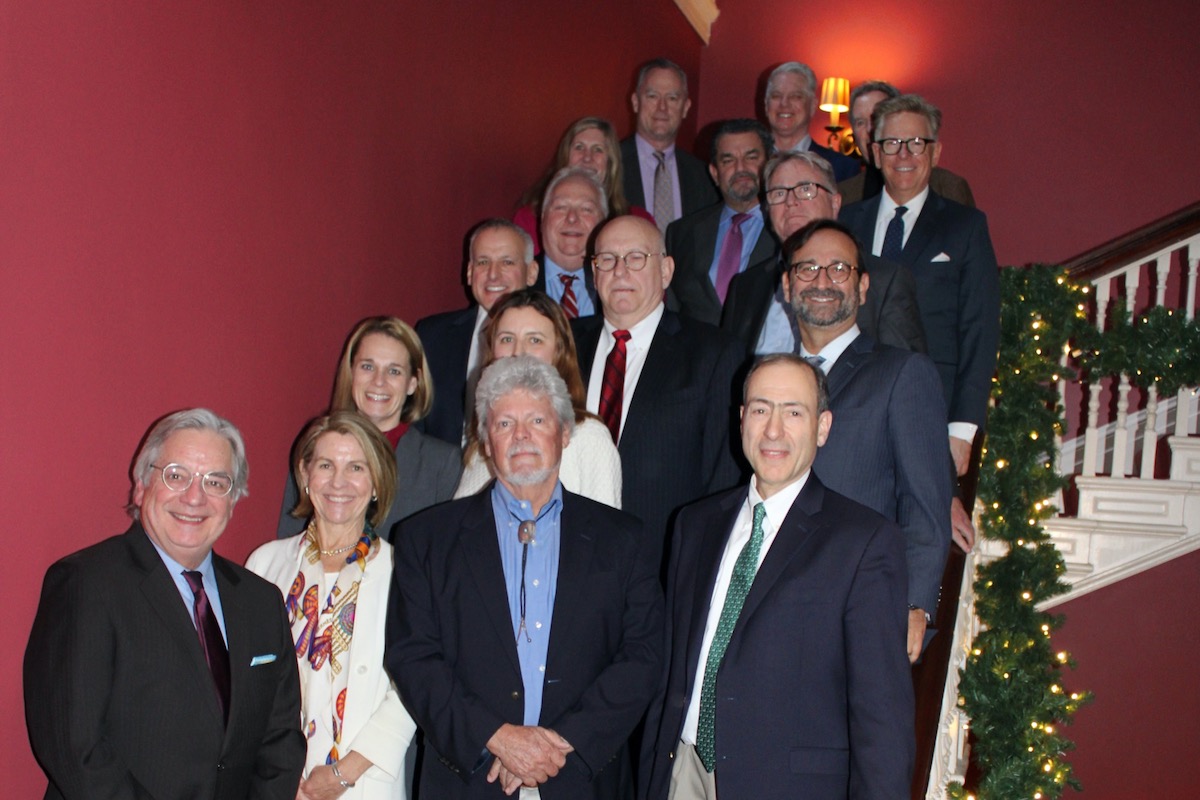A legal professional mental health series by Senior Fellow Don Blackwell of Bowman and Brooke, LLP, in Orlando, Florida

There are few phrases in the English language that resonate quite as sweetly in the human ear as “You’re Right!” Their mere utterance swells the chest as our hearts reflexively fill with satisfaction and pride. They are reaffirming, if not gratifying. On occasion, particularly when preceded by “I hate to admit it but ...,” they can even be empowering. In fact, repeat them often enough to the same person - whether it be out of a sense of duty, respect, deference, or fear - and before long they will instill a sense of superiority. It’s almost inevitable. Don’t get me wrong: All of us deserve the nearly intoxicating pleasure of being told we’re “right” from time to time and, when warranted, we shouldn’t hesitate to confer that same benefit on others. The problem arises when our desire to be “right” once in a while becomes our need to be right all the time – about everything! And, believe me: Too often it does.
Indeed, therapy rooms, family living and dining rooms, office conference rooms, and marital bedrooms are filled with people intent on proving they’re right – no matter what the cost. And, more often than not, they have the “evidence’ they need to do just that. They’ve been stockpiling it their entire lives. They’ve kept careful track/score of all the times they were “right” and, as importantly, the times in their not-so-humble opinion others (spouses, friends, lovers, colleagues, children, etc.) were “wrong” and they’re more than happy (and able) to pull that scorecard out on a moment’s notice should anyone - even someone they profess to love - dare to challenge the correctness of their point of view. I know intimately of what I speak, because, truth be told, I spent a number of years and expended a considerable amount of valuable emotional energy and relational capital needing to be right.
Ultimately, however, I came to realize that there’s a price that comes with needing to be right – a significant price. Among other things, always needing to be right makes it virtually impossible to truly listen to another’s point of view, let alone actually entertain the possibility that they may be right. It also makes the Needer quick to judge, at times even confrontational or dismissive of opposing points of view – not to mention predisposed to seeing even complex, multi-faceted problems and issues in stark, black and white terms. Over time, the combination of these highly undesirable attributes also has a “chilling effect” on others in the Needer’s life (e.g., spouses, children, co-workers, friends, colleagues, etc.), who would just as soon swallow their voice than engage in the debate that too often accompanies its expression or, worse yet, get the sense that they are being ignored, belittled, or invalidated – again!
Finally, but no less importantly, needing to be right presupposes that there is a “right” and “wrong” in every situation, which simply is not the case, especially when it comes to matters of the heart. In fact, one of the most difficult, but critical lessons I’ve had to learn over the years is that, as parents, spouses, friends, supervisors, etc., we can be all kinds of right with respect to our intentions, words, and even our actions only to later discover that those words and actions were misperceived, misdirected, and/ or misunderstood in ways that rendered them all “wrong” to those on the receiving end. And yet, the more we need to be right, the less likely it is that we will ever be able to embrace that sobering reality (i.e., that we may have hurt someone with the best of intentions), let alone find the humility required to seek forgiveness so that meaningful healing can begin in earnest.
I get that we work in a profession that places a very high premium on being right. I should, after all I’ve been bearing the weight of that premium for nearly 40 years now (have I really been doing this that long?!?). And, truth be told: There’s nothing inherently wrong with that pursuit, except that too often it spills over into what matters most (i.e., matters of the heart), where, left unchecked, it can and does cause considerable damage. One need only look at today’s world to see that. You see, the obsession with needing to be right – and its fallout – aren’t unique to the legal profession. It’s all around us and, like an out-of-control weed, it’s sucking the life out of the once lush landscape that was respectful dialogue, the art of listening, empathy, compromise, real civility, and compassion. We can do better, friends. Actually, we must.
Donald A. Blackwell has been a trial attorney for nearly 40 years. He currently is Of Counsel to Bowman and Brooke, LLP, where he devotes the majority of his practice to defending product manufacturers and distributors in complex product liability cases in state, federal, and appellate courts across the country. More recently, Don has spearheaded a campaign aimed at shining a light on the myriad of mental health issues disproportionately impacting the legal profession and the corresponding need for a higher level of Compassionate Professionalism among its members.
Don also dedicates a significant amount of his energies to supporting and advocating for individuals and families affected by eating disorders. He has authored multiple works on the subject and is frequently called upon to speak at local, regional and national eating disorder conferences and webinars. In 2020, Don organized and hosted the “Legacy of Hope Summit” - a first of its kind symposium attended by 25 of the country’s most highly-respected experts in the eating disorders field aimed at arriving at a blueprint for the path forward in the care and treatment of those diseases.
Don has been an LCA Fellow for over 10 years and was a 2014 recipient of the LCA's Peter Perlman Service Award.









